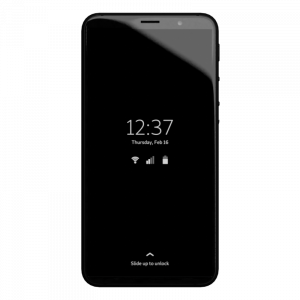Secret Service Telecom Bust Exposes Cellular Weaknesses
Purism
Latest posts by Purism (see all)
- A Quarter Century After Cyberselfish, Big Tech Proves Borsook Right - December 20, 2025
- PureOS Crimson Development Report: November 2025 - December 15, 2025
- Purism Liberty Phone Exists vs. Delayed T1 Phone - December 10, 2025
The Hidden Network That Could Have Silenced New York
When the U.S. Secret Service dismantled a sprawling clandestine telecom network within 35 miles of the United Nations General Assembly this week, it did more than avert a headline — it sounded an alarm about the fundamental brittleness of our communications fabric. Investigators found more than 300 SIM-server banks and roughly 100,000 active SIM cards concentrated in the New York tristate area, a cache capable of overwhelming cellular networks with the ability to send over 30 million texts per minute, jamming emergency lines, and enabling anonymous, encrypted traffic at scale. AP
This was no amateur stunt. The hardware alone costs millions, and early forensics point to nation-state actors using the system to send encrypted messages to organized crime groups, cartels, and terrorist organizations. The capacity was staggering—officials say it could have texted the entire country in minutes, or launched denial-of-service attacks that would leave emergency responders blind and citizens cut off from one another. CBS News
The timing was surgical: a convergence of 150 global figures, motorcades, and heightened security, all underpinned by the fragile lattice of cellular networks. In such moments, the spectrum itself becomes contested territory.
At Purism, we have long argued that privacy-by-default is not a boutique feature—it is the armor and the oath. Our devices are built to resist precisely this kind of intrusion.
- End-to-end encryption for calls, texts, and data, ensuring that even if a hostile network captures your traffic, it is unreadable without your consent. Offered as part of our Librem PQC Comms Server.
- User-sovereign controls that let you see, audit, and disable radios, rather than trusting opaque integrated modems and firmware.
- Source code transparency so that every protective measure can be verified, not merely promised.
- Private Cellular ecosystem for .gov use in the N79 spectrum.
This incident underscores the need for a cultural shift: to treat the architecture of our communications as sacred space, defended with the same vigilance as the physical perimeter of a summit. Purism’s mission is to operationalize that defense—not just for diplomats and officials, but for every citizen and agency whose signal needs this protection.
The lesson is clear: sovereignty begins in the spectrum, and resilience begins in the device. If we do not harden our tools, encrypt our exchanges, and demand transparency from carriers, then the next ‘discovery’ will be less a surprise and more a grim inevitability. The UN may host the world’s leaders, but the real summit is between those who build secure systems and those who seek to breach them.
Relevance to Purism and How Our Technology Thwarts Such Attacks
This breach is another example of why Purism exists. The attackers exploited weaknesses in cellular infrastructure—opaque software, unverified basebands, and centralized control systems. Purism’s architecture is designed to counter these vulnerabilities (and many others).
- Our Librem 5 smartphone provides user-sovereign controls that let you see, audit, and disable radios.
- Our Librem laptops and Librem Key offer tamper-evident boot security and cryptographic verification, ensuring that even compromised networks cannot silently alter your system.
- Our PQC (Post-Quantum Cryptography) servers are engineered to withstand future-state attacks, including those leveraging quantum computing to break traditional encryption. These servers provide secure enclave hosting, encrypted messaging, and resilient infrastructure for organizations that cannot afford to compromise.
This is not theoretical. It’s operational. Purism builds the tools that turn privacy from a preference into a perimeter—and from a perimeter into a protocol for resilience.
Purism Products and Availability Chart
| Model | Status | Lead Time | ||
|---|---|---|---|---|
 | Librem Key (Made in USA) | In Stock ($59+) | 10 business days | |
 | Liberty Phone (Made in USA Electronics) | In Stock ($1,999+) 4GB/128GB | 10 business days | |
 | Librem 5 | In Stock ($799+) 3GB/32GB | 10 business days | |
 | Librem 11 | In Stock ($999+) 8GB/1TB | 6+ weeks | |
 | Librem 14 | Out of stock | New Version in Development | |
 | Librem Mini | Out of stock | New Version in Development | |
 | Librem Server | In Stock ($2,999+) | 45 business days | |
 | Librem PQC Encryptor | Available Now, contact sales@puri.sm | 90 business days | |
 | Librem PQC Comms Server | Available Now, contact sales@puri.sm | 90 business days |
Recent Posts
Related Content
- A Quarter Century After Cyberselfish, Big Tech Proves Borsook Right
- Purism Liberty Phone Exists vs. Delayed T1 Phone
- Landfall: A Case Study in Commercial Spyware
- Sound Recorder App Now Available
- AWS Outage, Purism’s Answer is clear: Decentralize, Localize, and Empower Users to Own Their Digital Lives


